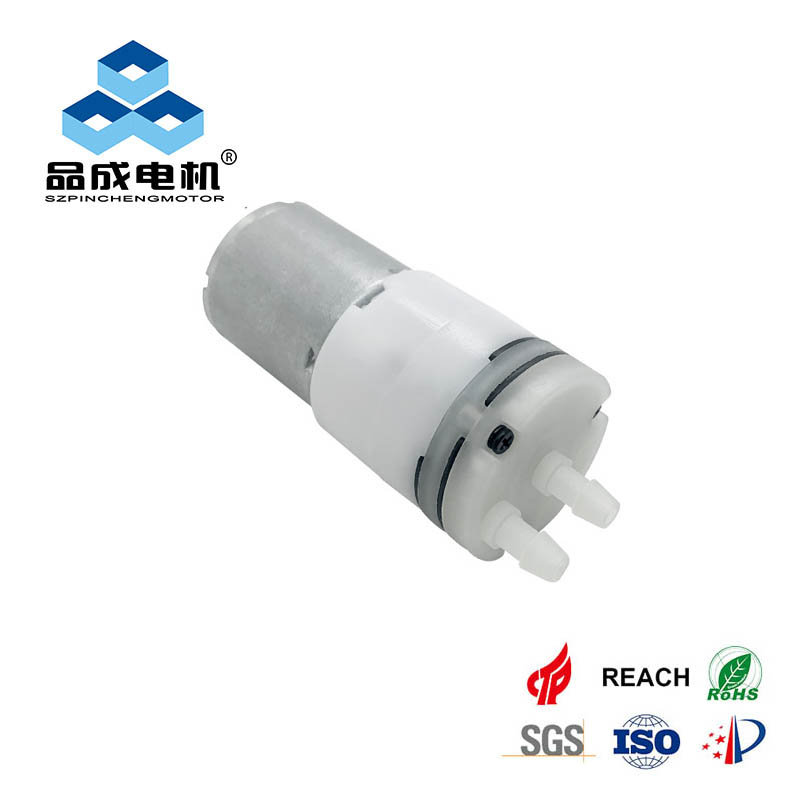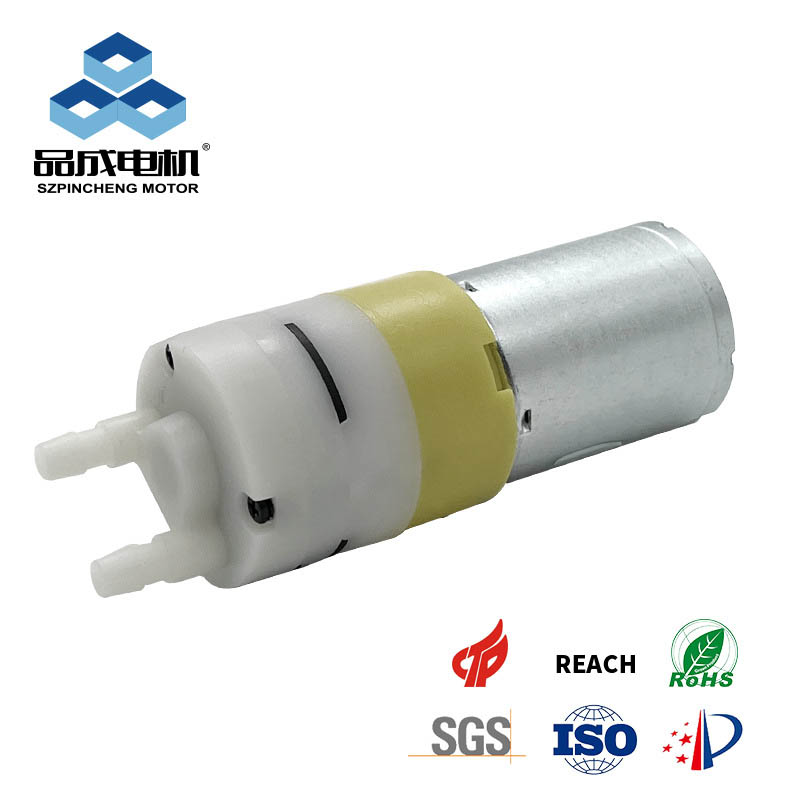The silent operation of water features or smart appliances is often taken for granted -- until small pumps start making noise.
If you want to know why micro water pumps keep making noise, you are facing one of the most common problems in fluid dynamics.The sounds are not random but result from mechanical, hydraulic or electrical faults.This guide will detail the main causes of micro pump noise, provide practical troubleshooting tips, and explain how advanced engineering techniques, such as Pincheng Motor's micro silent pump, can solve the problem at its root.
Three sources of pump noise
1. Mechanical noise (vibration)
This is the most common type of noise, caused by the physical movement of the pump parts: Unbalanced rotor imbalance: can produce vibration and bearing wear, lead to hum or quack. Wear of parts: Wear of impellers, shafts or bearings can cause grinding or clicking sounds. Install loose: no fixed pump vibration on the base, amplifying the noise.
2. Hydraulic noise (water flow noise)
Produced by the fluid motion, usually indicate traffic problems: Cavitation: bubble bursting crack, caused by insufficient water supply or inlet pressure is too low. It will damage the internal parts. Turbulence: Turbulence or hissing caused by rapid flow of water through resistance or sharp bends.
3. Electrical noise
Usually manifested as a high frequency whistle or buzz: Brush/commutator noise: in brushless dc motor. Frequency noise: from control circuits, such as PWM drives.
Pump noise troubleshooting
Try the following steps before considering a pump replacement:
step 1: check the installation and the environment
Mount the pump on a soft damping material, such as rubber or foam. Tighten all the screws.A loose pump will always produce noise. If it is a submersible pump, make sure it is fully submerged in water to avoid air inhalation.
Step 2: Check the water supply
Check the water level, prevent dry running and air corrosion. Clear the hair or sediment on the water filter and the impeller and other sundry. Ensure that the pipe not kink or blocked.
Step 3: Check the power supply
Use the correct voltage.Too high a voltage can cause the motor to overdrive. To ensure stable power supply, avoid to produce hum.
The solution of Pin-city silent pump
For noise is not acceptable for applications, such as medical or smart home equipment, the best solution from the start using mute pump. Pincheng Electric's micro silent water pump adopts acoustic priority design: Shock absorption: Proprietary pump housing and mounting materials absorb mechanical noise. Precision balancing: The motor undergoes dynamic balancing to minimize vibration to the greatest extent. Optimized hydraulics: Impeller and runner designs reduce turbulence and prevent cavitation, even in high pressure models. When you choose a Pinsent pump, you are choosing a reliable silent solution - designed to eliminate noise completely.
Conclusion
Micro pump noise usually originates from mechanical, hydraulic or electrical faults.While troubleshooting can solve some problems, choosing a pump designed to operate silently is a lasting solution.Whether you need a low pressure micro pump or a robust high pressure model, Pincheng offers a micro silent pump that combines high performance with quiet operation.Choose Pincheng to experience the precision designed mute effect.
you like also all
Post time: Nov-17-2025




